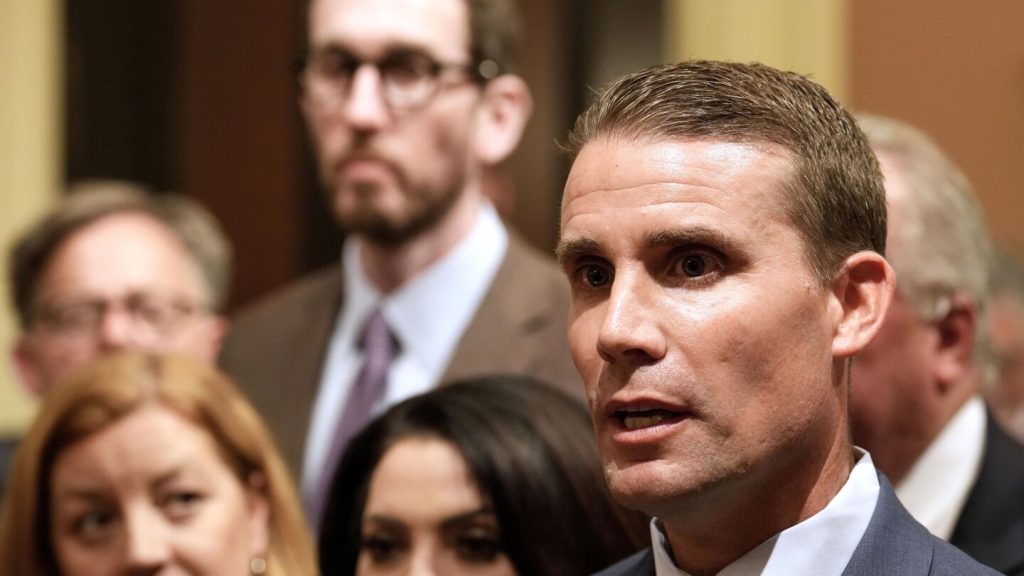The California Senate recently approved a bipartisan package of 15 bills aimed at increasing penalties for organized crime rings, expanding drug court programs, and closing legal loopholes to make it easier to prosecute auto thefts. One of the proposals requires large online marketplaces like eBay and Amazon to verify the identities of sellers who make at least $5,000 in profit in a year, in an effort to combat the sale of stolen goods. Senate President Mike McGuire emphasized the importance of working together for a safer California and expressed hope in getting the bills to Governor Gavin Newsom’s desk quickly. The urgency in passing these bills reflects a new strategy to address crime fears in an election year while maintaining progressive policies.
The state of California has been facing a crisis in large-scale thefts, with organized groups brazenly stealing goods in stores. While the exact extent of the issue is challenging to quantify, data shows that the Bay Area and Los Angeles have experienced a steady increase in shoplifting incidents. A study by the Public Policy Institute of California revealed that shoplifting rates have risen across the state, although they remain lower than pre-pandemic levels in 2019. Assembly lawmakers also advanced retail theft measures, including a bill targeting professional theft rings authored by Assembly Speaker Robert Rivas. This bill aims to give law enforcement more authority to impose harsher penalties on thieves and address the issue of stolen goods being sold or returned illegitimately.
The recent legislative actions also included proposals to crack down on cargo thefts, restore district attorneys’ authority to pursue thieves and resellers operating across jurisdictions, and allow retailers to obtain restraining orders against convicted shoplifters. These measures are part of a larger effort to address the rising levels of theft and other criminal activities in urban areas of the state. As these bills move to the second chamber for further consideration, the Democratic lawmakers in California remain committed to upholding progressive policies like Proposition 47, which reduced penalties for certain crimes in 2014. While this measure has led to cost savings and successful recidivism programs, it has also made it harder to prosecute shoplifters and enabled crime rings to operate with impunity.
Law enforcement officials and district attorneys in California have been vocal about the challenges they face in prosecuting crimes due to the limitations of Proposition 47. Despite the success of local programs funded by the savings from reduced incarceration rates, there is a growing sentiment among officials and lawmakers to revisit the measure. The coalition behind the initiative has gathered over 900,000 signatures to put a potential rollback of Proposition 47 on the November ballot, highlighting the widespread concerns over rising crime rates and the need for more comprehensive solutions. As California grapples with the impact of progressive policies on crime prevention and prosecution, the ongoing legislative efforts reflect a broader conversation around balancing public safety concerns with efforts to reduce mass incarceration.


